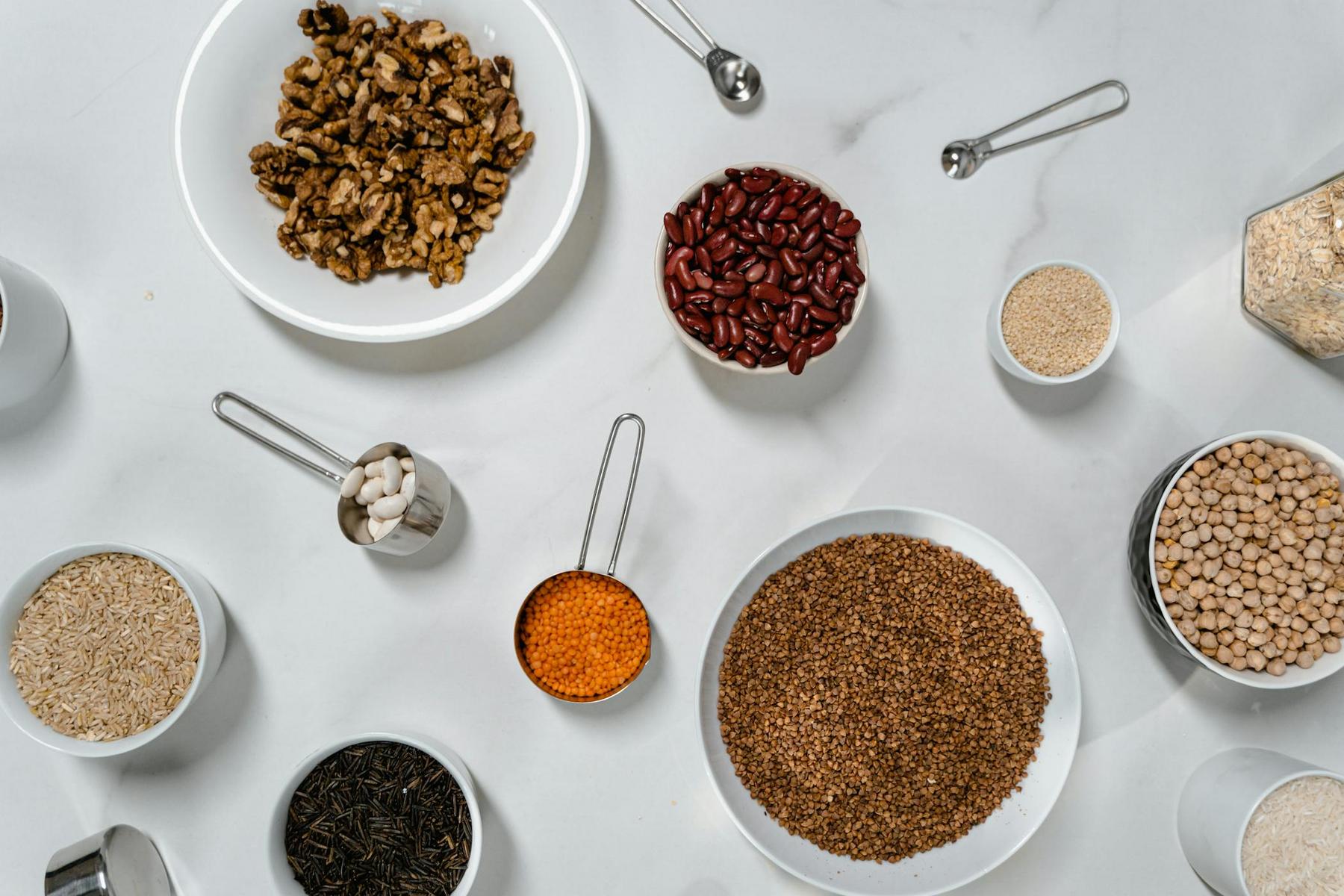For many Australians on a weight management journey, the concept of “cheat days” presents a tantalising yet perplexing dilemma. These planned deviations from dietary restrictions have become a polarising strategy among health professionals and patients alike. The tension between enjoying life’s culinary pleasures and maintaining progress toward health goals creates significant emotional and practical challenges. As we navigate the complex relationship between sustainable lifestyle changes and structured dietary approaches, understanding the true impact of cheat days becomes essential for informed decision-making.
What Are Cheat Days and Why Have They Become Popular?
Cheat days represent planned intervals where individuals temporarily deviate from their normal dietary restrictions, allowing themselves to consume foods normally avoided during their regular eating pattern. This concept has gained substantial traction in fitness and weight management communities, primarily because it addresses the psychological challenge of maintaining rigid dietary protocols indefinitely.
The popularity of cheat days stems from their apparent promise to provide psychological relief from constant restriction while potentially offering metabolic benefits. The “restraint-release” model suggests that incorporating planned indulgences may reduce the cognitive strain associated with constant self-denial. Research indicates that participants permitted weekly cheat meals reported 23% higher diet adherence rates compared to those following continuously restrictive regimens, highlighting the potential sustainability benefits of this approach.
However, the implementation of cheat days varies considerably, ranging from structured, calculated departures from normal eating patterns to unrestricted consumption periods—a distinction that significantly influences their effectiveness and impact.
How Do Cheat Days Impact Your Metabolism and Hormones?
The physiological mechanisms behind cheat days reveal a complex interplay of hormonal responses that can both support and potentially undermine weight management efforts.
During prolonged dieting, the body undergoes several adaptive responses: leptin (which suppresses hunger) can decline by up to 50%, while ghrelin (the “hunger hormone”) increases, creating a physiological drive to overeat. A controlled cheat meal temporarily elevates leptin levels by 20–30%, potentially resetting hunger signals for 24–48 hours.
This hormonal modulation may explain findings from the University of Tasmania study, where participants following a two-week-on, two-week-off diet protocol lost significantly more weight than continuous dieters over six months.
Additionally, intermittent calorie increases during cheat days can boost thyroid hormone production, elevating resting metabolic rate by 3–10% for up to 24 hours. However, these effects are transient, and excessive cheat-day calories (exceeding 30% above maintenance needs) can negate weekly caloric deficits.
For individuals in a moderate caloric deficit (500–750 kcal/day), research suggests that a single cheat meal containing 25–35% of weekly maintenance calories appears optimal for sustaining metabolic efficiency without compromising progress.
Can Cheat Days Improve Psychological Well-being and Diet Adherence?
The psychological dimensions of cheat days are perhaps their most compelling feature. Rigid dietary rules can increase cravings and the risk of binge-eating patterns. By allowing planned indulgences, many individuals experience reduced feelings of deprivation and increased long-term adherence to healthier eating patterns.
The “80/20 rule”—eating nutritiously for 80% of meals while allowing flexibility for 20%—has emerged as a sustainable approach for many. This balanced perspective acknowledges that perfect adherence is rarely sustainable and that planned flexibility may prevent the all-or-nothing mentality that often derails weight management efforts.
However, the psychological benefits are not universal. For approximately 15–20% of individuals, cheat days trigger loss-of-control eating episodes that can persist for 3–5 days, often erasing weekly caloric deficits. Those with a history of yo-yo dieting or disordered eating patterns are particularly vulnerable, with cheat days potentially increasing relapse risk by 40% according to longitudinal research.
What’s the Difference Between Cheat Meals and Cheat Days?
The distinction between cheat meals and cheat days represents a critical consideration for effective implementation:
| Aspect | Cheat Meals | Cheat Days |
|---|---|---|
| Caloric Impact | 450-600 excess calories | 2,100-3,500 excess calories |
| Weight Management | Maintains steady fat loss | May stall or reverse weight loss |
| Recovery Time | Minimal physiological impact | 68% report feeling sluggish/bloated |
| Practical Implementation | Easier to control portions | Higher risk of overconsumption |
| Social Integration | Can be scheduled around events | Provides more flexibility |
| Monthly Weight Loss Impact | Minimal reduction | Could reduce monthly loss from 4 pounds to 1.5 pounds |
Research demonstrates that participants allowing full cheat days consumed significantly more excess calories weekly compared to those limiting indulgences to single meals. For a 70 kg individual, this difference could substantially impact monthly weight loss outcomes.
Nutrition experts increasingly advocate for “planned deviations” rather than unrestricted days—for example, enjoying dessert at a special event while maintaining protein and vegetable intake for the remainder of the meal.
Who Should Avoid Cheat Days and Why?
While strategically implemented cheat days may benefit certain individuals, they are not universally appropriate. Evidence suggests several populations should approach this concept with caution or avoid it entirely:
Individuals with a history of binge-eating disorder may find that cheat days trigger problematic eating patterns. The neurological response to hyperpalatable “cheat foods” can activate dopamine pathways similarly to addictive substances, creating a challenging “feast mentality” in susceptible individuals.
People with diabetes require particular caution, as research indicates a single high-carbohydrate cheat meal can elevate postprandial glucose by 180% for six or more hours, potentially compromising metabolic health.
Those using weight-loss medications also face unique considerations due to mechanisms like slowed gastric emptying, which may alter the body’s response to larger or more calorie-dense meals.
Additionally, individuals experiencing rapid weight loss or following very low-calorie diets may find that the caloric impact of cheat days disproportionately affects their progress compared to those following moderate approaches.
How Can You Implement Cheat Days Effectively?
For those who may benefit from structured dietary flexibility, evidence-based frameworks offer guidance for implementation:
The 5:2 Cheat Model involves following five days at a 20% caloric deficit, with two days at maintenance calories. Research indicates this approach resulted in 12% greater fat loss than daily restriction in randomised controlled trials.
Post-Workout Nutrient Timing suggests consuming cheat meals within two hours of resistance training, potentially directing 45% more calories toward muscle instead of fat storage.
caloric cycling pairs cheat meals with a 15% reduction in daily intake for three days before and after the indulgence, helping maintain overall weekly caloric targets.
Macronutrient Prioritisation recommends allocating higher protein percentages even during cheat meals to minimise fat storage and promote satiety. For example, a 2,000-calorie cheat meal might target 40% protein, 40% carbohydrates, and 20% fat.
Professional guidance becomes particularly valuable when implementing these strategies, as individualised approaches based on metabolic health, psychological predispositions, and lifestyle considerations yield superior outcomes.
Are Cheat Days Actually Sustainable for Long-Term Weight Management?
The sustainability of cheat days ultimately depends on their implementation and alignment with individual needs. The evidence suggests that occasional, structured indulgences may prevent metabolic adaptation, reduce diet fatigue, and improve long-term adherence to healthy eating patterns—particularly when integrated with professional guidance.
For medical weight management approaches, the inclusion of monitored dietary flexibility may enhance long-term success rates by 18–22% compared to rigid protocols, underscoring the potential value of balanced approaches.
However, the effectiveness of cheat days exists on a spectrum from therapeutic tool to potential liability. When calibrated to an individual’s unique profile, planned indulgences can enhance diet sustainability. The line between strategic refeeding and counterproductive overeating remains narrow, emphasising the importance of personalised approaches.
The most sustainable approaches typically involve moderation rather than extremes—incorporating occasional planned indulgences within an overall nutritionally sound eating pattern, with ongoing adjustments based on individual responses and progress.
Skip the struggles. Our patients achieve <20.2% weight reduction with medical weight loss treatments delivered straight to their door. No clinics. No waiting. Just results. See if you're eligible for our medical weight loss treatments - take our quiz.
How often should you include cheat meals in your weight loss plan?
Research suggests that for most individuals, a single cheat meal weekly provides psychological benefits while minimising metabolic disruption. Those with higher activity levels may successfully incorporate up to two cheat meals weekly, particularly when timed around exercise. However, frequency should be individualised based on metabolic health, psychological factors, and overall progress toward health goals.
Will a cheat day completely derail a week of dieting?
A single cheat day can add between 2,100-3,500 excess calories, potentially offsetting several days of caloric deficit. However, the impact varies significantly based on implementation. When properly structured and incorporated within weekly caloric planning, a moderate cheat meal (rather than a full day) typically has minimal impact on overall progress when viewed within the context of consistent healthy habits.
Are cheat days more beneficial for active individuals?
Evidence indicates that active individuals, particularly those engaged in intense resistance or endurance training, may derive greater benefits from strategic refeeds. A controlled increase in carbohydrates can restore muscle glycogen depleted by training, potentially improving performance and recovery. The University of Tasmania protocol demonstrates particular promise for active populations when properly implemented.
How should people using professional weight management services approach cheat days?
Individuals engaged in professional weight management programs should discuss dietary flexibility with their healthcare providers. Integrated approaches that combine medical supervision with personalised nutrition strategies typically yield superior outcomes. For telehealth weight management services, the inclusion of monitored flexibility within structured plans may enhance long-term adherence while maintaining consistent progress toward health goals.
How can you prevent a cheat meal from extending into multiple days?
Implementation intentions—such as planning a specific dessert at a dinner party—reduce impulsive choices by approximately 33%. Additionally, tracking weekly averages rather than daily totals helps maintain perspective on overall progress. Planning cheat meals in advance, focusing on quality rather than quantity, and returning immediately to regular eating patterns all contribute to preventing extended departures from nutritional goals.



